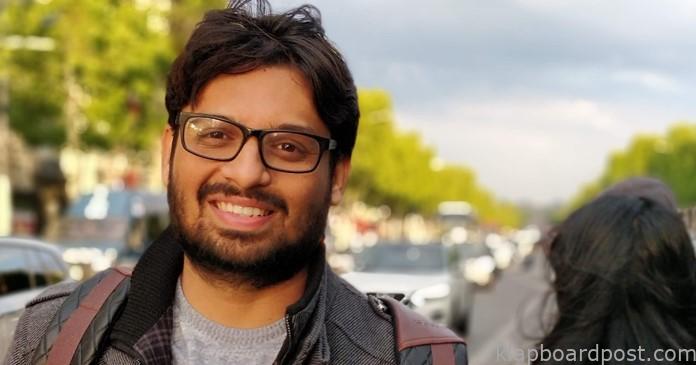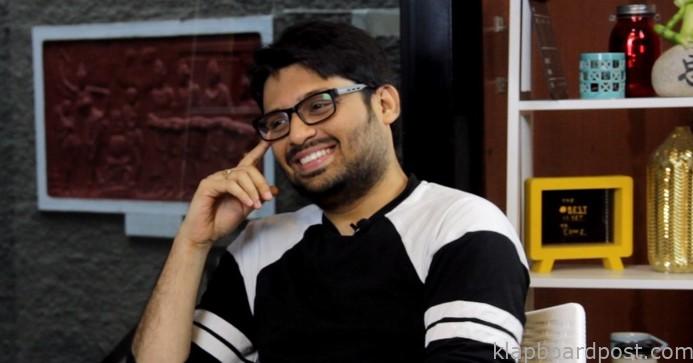Lyricist Kittu Vissapragada had been very resourceful and contributed countless songs during the pandemic. He is currently living in Dublin where his wife works and he in his capacity as a homemaker and a lyricist has been doing justice to both his roles. In a chat with Y.Sunita Chowdhary of Klapboardpost.com, he shares that he has written more songs when he was in Dublin than he was in India. He says, “I have written 70 songs in six months. I am busy on weekends too. During lockdown, I had enough work. Emphasis on physical presence during ‘song sittings’ doesn’t matter, we do video calls and tunes can be sent online. Back home in India, the practice usually was to narrate the situation, they would tell us to come to the office and a lot of time would be lost in travelling. Like I said, there is a procedure, music directors would be available in their studio and we would meet them. This generation’s music directors Vivek Sagar, Prashant Vihari, Sree Karan are like minded and on a skype call…they are on the keyboard and compositions happen easily. Recently I was in Hyderabad and met music director Mani Sarma. He likes and prefers the singers or lyricists being present, right there. For Keeravani, I had written for him but it all happened on the phone. We work in accordance with the comfort level of the music director. Mani Sarma’s son also wants us to be present but in my case it worked out easily.” He concurs that it is a psychological block and it takes time for people from old school to warm up to the idea of online usage benefits.

He adds, “If you want to meet a person, a lot of time is lost for example…the travel, exchanging pleasantries, chit chat and by the time you arrive at the point, time is up. During lockdown, there wasn’t much impact on writers. Earlier we would go to the shoot, get to know the situation and get back home to write. Since no work was happening during lockdown, all the production people depended on us for pre production. Lot of brainstorming happened with writers for existing films and about to take off movies.”
Ask Kittu if the style of writing songs for film is different from that of what is given for OTT subjects, he says, “For a film to be released in a theatre, a certain grammar ha sto be followed and that is different from what is written for OTT films or web series. In theatre, it is possible to guess, expect that a certain scene could be elevated and would get applause. The filmmakers know for sure how the audience would react to a situation. In OTT films, it is easy to pause or fast forward. There are so many distractions at home. To pull focus, the script has to be that strong. There are not many songs in web series but the content i.e, the grammar is different for both. The filmmakers take steps to avoid distraction. Be it writing dialogues or lyrics, we always aim for good content, it doesn’t make a difference but from a film making perspective we need to write differently.” Ask Kittu why for certain films, even big budget movies, lyrics never get ready on time and shoot of the song gets delayed. He quips, “Maybe the lyric is not okayed, it needs to be written in 8 or 9 versions. Usually in a story, the hero sees a heroine and there is a song. This has been there since time immemorial. To bring the freshness quotient, they ask for new expressions and there is bound to be creative differences. Because the lyric didn’t come on time, shoot gets obviously delayed. The tunes don’t get a green signal or sometimes even the singer’s voice doesn’t suit the song. All these are reasons for the delay and can’t pinpoint one particular thing.”

Some songs become a huge hit even before the film releases but when we watch the visuals in the theatre, it fails to excite us. Is it that the choreography doesn’t match the song or is it because there has been excess hype and expectations on the said number? When ‘Why this Kolaveri’ became viral none liked the video. The video wasn’t a hit as much as the audio was. In recent times, I think the audio and video of Rowdy Baby worked. The song got a great following along with the video like Bahubali. It is like this, the aroma of the food is mind blowing but when we taste it, we feel the salt was inadequate. There are several crafts around 4 to 5 which need to fall in sync after the song is finished…for example, there will be mixing and mastering. Ye instrument entha sthayi lo vinapadaali anedhi engineering. If it fails on that front, the song doesn’t work due to unequal vocal or audio distribution. You can miss one word in one ear while listening.”
We discussed his latest input, he had written four songs for director Ramana Teja’s film Kinnerasani. He explains the lyrics of the number Parvathipuram which is the introduction song of a villain. He says, “I wrote the lyric first and then it was tuned and must say I liked the director’s perception. It is about how this character steps into the village when an innocent girl is getting married and how he unknowingly becomes the groom. The director questioned how it would be if the village breaks into a song. So the song becomes a personification of a village and like I said, the village talks about itself.” He elaborates, “The village talks about its outskirts and the zigzag path that leads to it. There are bushes on the outskirts and they give out a fragrance of the camphor. There is a huge tree who is playing guard, that seems to question every person who steps into the village. There is a lake and a Gali Gopuram which is a witness to the man entering the village and the Goddess Parvathi Devi who is the daughter of the hills sees the village celebration. The man can smell the fowl being cooked. There is a small fear, in that atmosphere the idiot steps in to make the innocent girl his wife. The music director never told me to change a word.” Kittu signs off but not without complimenting the youngsters who are making their way into the film industry as lyricists. He says it is a welcome change and is gratifying to listen to their perspective and words.













